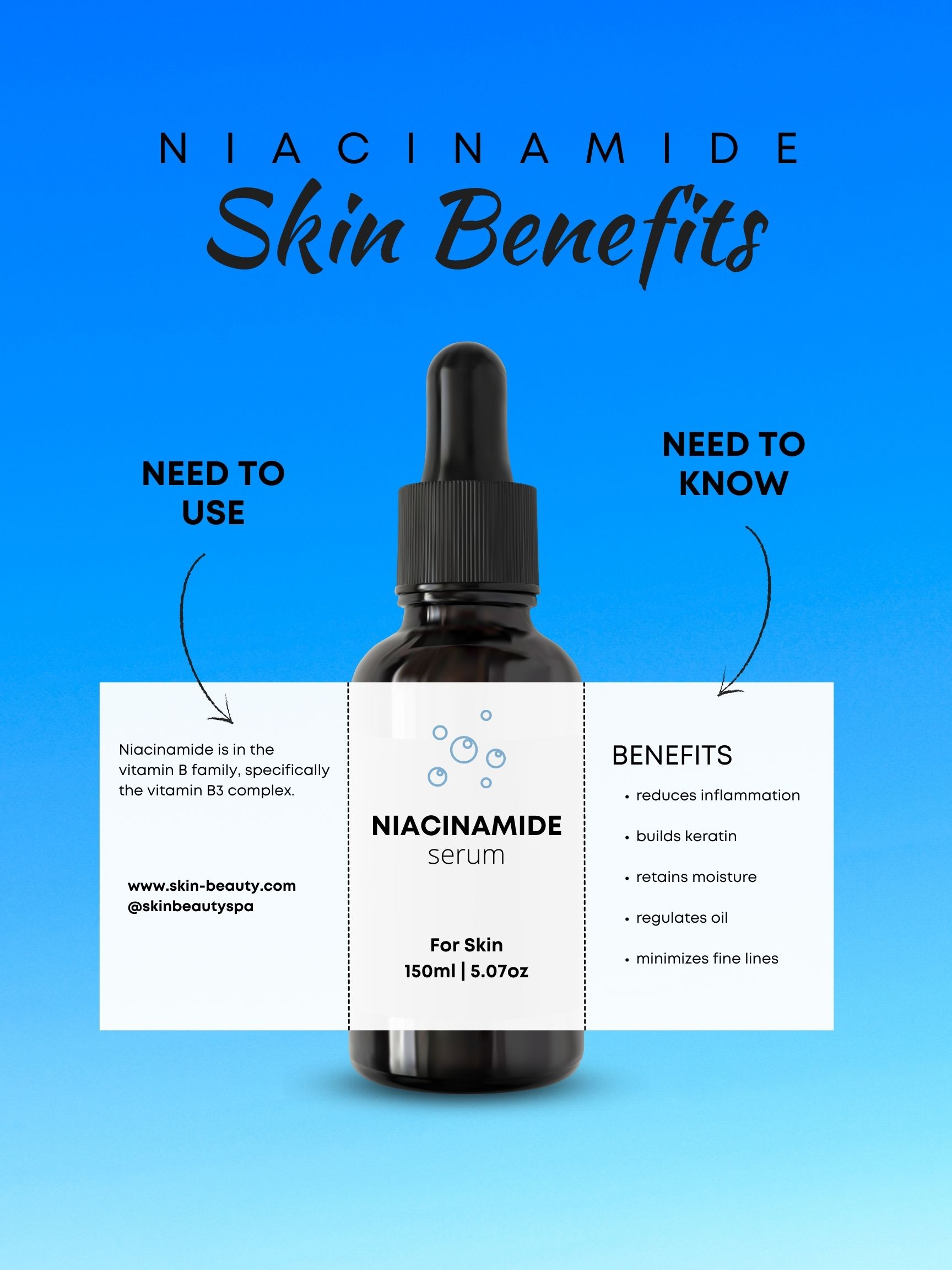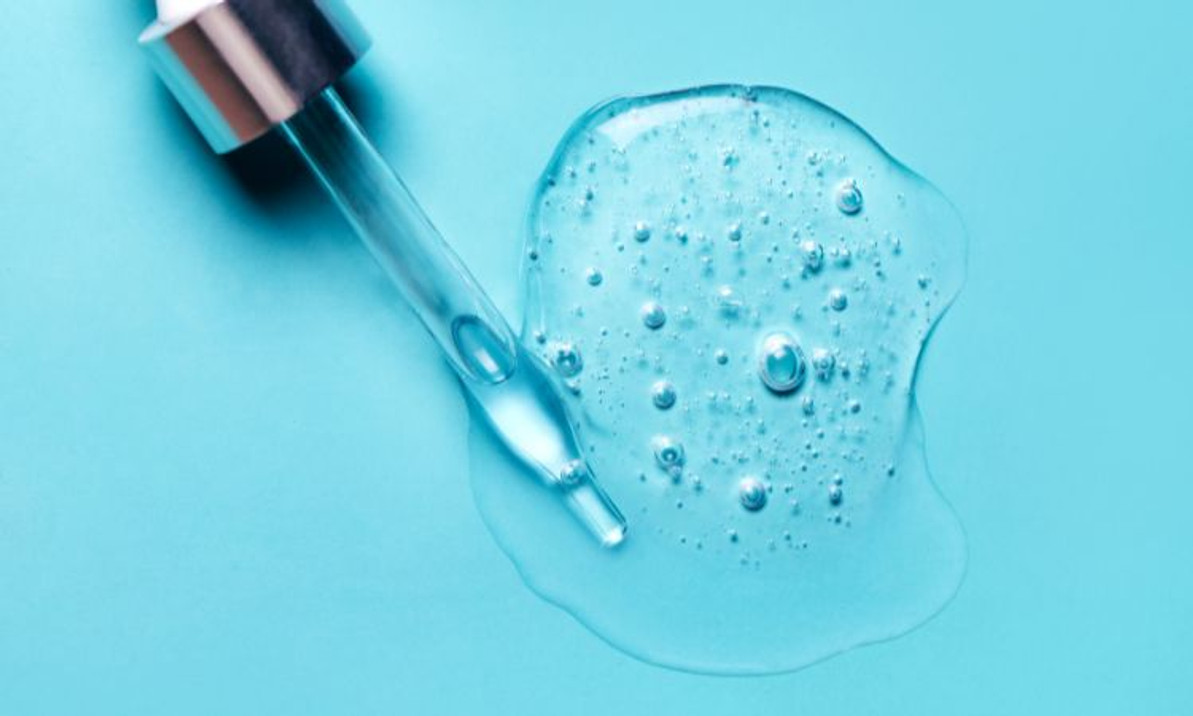Niacinamide
Niacinamide or nicotinamide is a form of vitamin B3 found in food and used as a dietary supplement and medication. When in the form of a supplement, it prevents and treats pellagra (niacin deficiency). In addition, niacinamide has the benefit of not causing skin flushing. As a cream, it is used to treat acne. Niacinamide is the supplement name, but Nicotinamide (NAM) is the scientific name. Niacinamide is in the vitamin B family of medications, specifically the vitamin B3 complex. Foods that contain niacinamide include yeast, meat, milk, and green vegetables. Niacinamide was discovered between 1935 and 1937 and is on the World Health Organization's List of Essential Medicines. Niacinamide is available as a generic medication and over the counter. Commercially, niacinamide is made from either nicotinic acid (niacin) or nicotinonitrile.
What are the side effects of niacinamide on the skin?
Niacinamide has minimal to no side effects. At high doses, liver problems may occur. Regular doses are safe during pregnancy. Different factors, including your skin type, genes, or any existing skin conditions, can all impact whether or not a specific skin care product is right for your skin type. That's why it's a good idea to do a patch test and pay attention to any signs of an unwanted reaction. You might not notice any adverse effects immediately but begin to see increased breakouts or other irritation during a few days or weeks of regular use.

What are the benefits of niacinamide on the skin?
Niacinamide cream is used as an acne treatment. It has anti-inflammatory actions, which benefit people with inflammatory skin conditions. Niacinamide improves the epidermal barrier. In addition, the application of 2% topical niacinamide for 2 and 4 weeks effectively lowers the sebum excretion rate. Some other skin benefits from topical niacinamide may include relief to a stripped moisture barrier in the skin, reducing irritation, increasing collagen production, and lessening hyperpigmentation in one's skin. In addition, niacinamide may be beneficial in treating psoriasis. There is some evidence for the potential of niacinamide in treating acne, rosacea, autoimmune blistering disorders, aging skin, and atopic dermatitis. In addition, at doses of 500 to 1000 mg a day, you can decrease the risk of skin cancer other than melanoma in those at high risk.
Can you use niacinamide and vitamin C together?
Yes, you can use vitamin C products and products containing niacinamide in your skincare routine. Vitamin C and niacinamide are two popular ingredients that offer many potential benefits, from helping relieve inflammation to brightening your skin. Since they provide complementary benefits, it might be why using them both can enhance their effects.
Can you use niacinamide every day?
Yes! You can use niacinamide daily. Apply a niacinamide product before you layer on thicker products like moisturizers. Rule of thumb? If a product has a thinner formulation, apply it first. There are a few things to keep in mind when adding new products to your routine. First, use one new product at a time and wait at least a week before adding another new product. If you have sensitive skin, consider waiting two weeks or more. Start applying the product once per day or every other day. Even if your skin can tolerate any product reasonably well, it's never wrong to start using new products slowly. Do a patch test first. Try it out on a small skin area first when considering a new facial product. If you don't notice any irritation after 24 hours, try the product on the rest of your face. Always check the product label to find out how to store it the best. Since most skin care products use stable forms of the ingredient, it is still best to keep the product at room temperature and away from sunlight.
Can you use niacinamide and hyaluronic acid together?
Hyaluronic acid and niacinamide are water-based treatments that complement each other's hydrating effects and can be used together. You'll find a variety of skincare containing both ingredients in their formulations, but you can buy them separately and layer them. When mixed, hyaluronic acid and niacinamide improve the overall aspect of your skin, leaving it rejuvenated, minimizing lines and other signs of aging. A good idea for possible quick results is to use different products and layer them.
Recent Posts
-
The Power of Exosomes in Skincare
Exosomes in Skin Care: The Future of Exosome and Regenerative Medicine in Skin Science Skincare inn …Oct 17th 2025 -
Steps for a Skincare Routine
6 Steps to a Proper Skin Care Routine: Your Esthetician-Approved Guide to The Best Skin If you've ev …Aug 11th 2025 -
Treatment of Hyperpigmentation
How to Treat the Appearance of Hyperpigmentation This Summer: Your Complete Guide Summer sun is wond …Jul 17th 2025




